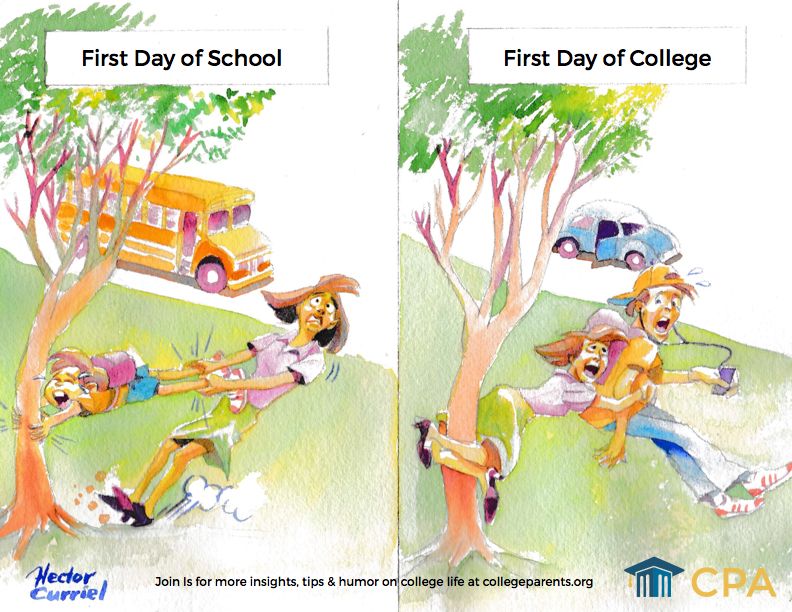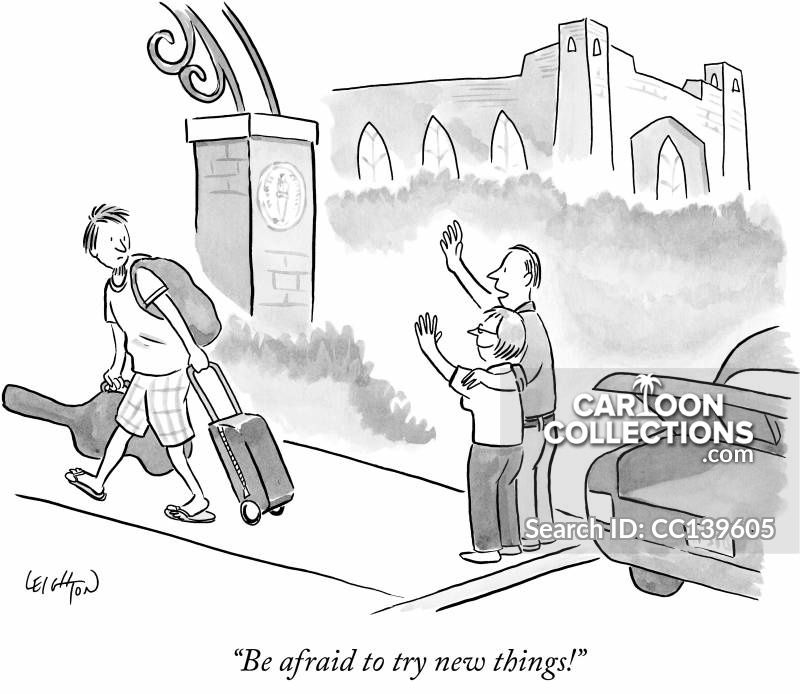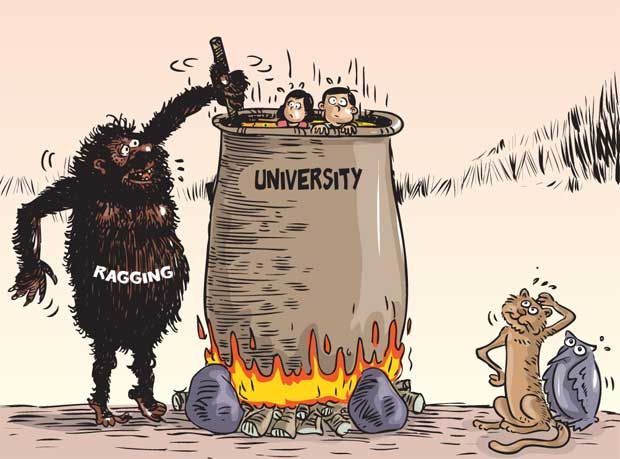A Message For Freshers And To-Be Seniors!
May 12, 2019 • 138 views
'Tis the season…
…for college to begin!
The months between May to August every year are full of excitement for young students who have just completed their intermediate education and are now gearing up for higher studies in even more prestigious institutions.
In addition, it’s a time for change too—in preparation for college a great big chunk of the student’s life is quickly dropped behind in order to embrace new experiences and new surroundings. Take living in a hostel, for example; for some it can be painful, having to live away from their parents or siblings for the first time ever, perhaps; but for others, who want to start living independently and enjoy all that freedom from home has to offer, it can be quite refreshing.

But there are also the dull aspects to college. I think you can guess what I’m talking about. It’s the menace of ragging.
“Ragging” is not an uncommon term for today’s college-going population; in fact, I might not be wrong to say that the menace prevails in quite a few schools, too.
Let’s first take a look at how the Supreme Court of India views ragging:
“Ragging is any disorderly conduct, whether by words spoken or written, or by an act which has the effect of teasing, treating or handling with rudeness any student, indulging in rowdy or indisciplined activities which cause or are likely to cause annoyance, hardship or psychological harm or to raise fear or apprehension thereof in a fresher or a junior student and which has the effect of causing or generating shame or embarrassment so as to adversely affect the psyche of a fresher or junior student.”
Yeah, I recommend you read that once again, and then one more time!
But do you know that ragging was originally a Western concept? It originated in Europe, where, in certain universities, seniors played practical jokes at the time of welcoming freshmen to the institutions. Gradually, the practice became popular throughout the world and soon ragging took an obnoxious and harmful form, so much so that it was severely condemned and almost all countries of the world were forced to enact stern laws banning it.
Today, it has been completely eradicated from nations like Canada and Japan, but sadly India, which inherited this as a “legacy” from the British Raj, is the only country, apart from Sri Lanka, where the practice still continues to thrive—and that too, in its worst form possible.
The condition is such that now, ragging has been classified into so many types—Dress Code Ragging, Formal Introduction, Verbal Torture, Sexual Abuse (one of the most rampant and disgusting forms), Playing the Fool, Hostel Ragging, Drug Abuse, among countless others, which still may not have a name. From dressing and parading in fancy costumes and using abusive language to teachers and other students, to cleaning seniors’ rooms and fetching things for them, to being forcibly trying drugs, cigarettes and alcohol, and to strip in front of seniors—the extent of ragging in India is really unlimited and really, really shameful.

Therefore, it is no surprise that out of one hundred sixty-four ragging cases in the academic session 2009-2010, nineteen suicide cases due to ragging had been reported. Well, these may look like old statistics, but it is also true that most of the victims do not approach the police to lodge a case against their oppressor or oppressors. Sample this, too—out of one thousand, one hundred eighty-three cases of ragging reported to the University Grants Commission (UGC) between 2013-2014, across the country, the police filed an FIR in only sixty-six of the cases. The highest number of cases were reported from Uttar Pradesh for three years in a row, from 2012 to 2014.
Undoubtedly, this also shows the laxity of Police in taking action against the perpetrators, in turn, making the victims vulnerable to further physical and mental harassment. A few sensational deaths as a result of ragging do indeed manage to capture the public eye and the media’s attention, but very soon all the incidents are forgotten or downplayed.
But now that awareness about ragging as a crime has increased, many steps have been taken already to ensure that such incidents do not repeat themselves. A student can use Provisions 294, 323-326, 339-342 and 506 of the Indian Penal Code (IPC) to register an FIR according to the type and extent of ragging she or he was subjected to.
Apart from this, the UGC, in 2009, released a list of ‘Regulations on Curbing the Menace of Ragging in Higher Educational Institutions’ which laid down a number of rules and measures to make an institution ragging-free. In addition, on 24 April, 2014, the UGC asked institutes to install electronic surveillance systems (like CCTV) and alarm bells to curb instances of ragging, especially inside canteens, hostels and along college corridors and lawns. It mandated surprise inspections to spots that are conventionally used for such purposes. Also, it directed colleges to form anti-ragging squads, and quick-response teams.
Of course, these measures are some doable solutions, but we actually need to get rid of the problem from the grassroot level itself.

The original intention of the activity now called “ragging” was simply to break the ice, initially, between freshers and seniors. But, obviously, this much fire is not required for it! :P
I remember my own first week at college. Some seniors smiled at me for no reason when they saw me, but it only made me feel more comfortable and welcome. Our immediate seniors asked us to gather in a classroom after one or two days, and introduced themselves first, before asking us to tell them about ourselves, our hobbies, and the region where we come from (our college truly is a universe of diversity). At least no one asked us our class 12th percentages!
Another time in the first month, all the seniors from across all batches at the campus gathered under one roof with us! Now that definitely seemed a bit intimidating, but in the end, it was only a fun session where they encouraged us to display our talents or hobbies like singing, miming or acting. I am actually grateful for it because had I not had the chance to express myself then, I might have shied away from all future college events where I later went on to garner much applause for my talents!
It was hardly a year ago that I was a fresher myself, but now I feel quite ready to welcome my very own juniors. And as a senior, it will now be my responsibility to welcome the new students with warmth and enthusiasm, and to let them know, with a smile on my face, that I will always be there to help guide them through the tough phases of college life, as and when they come.
Image Credits: deccanherald.com, collegeparents.org, cartoonstock.com, dailymirror.lk
